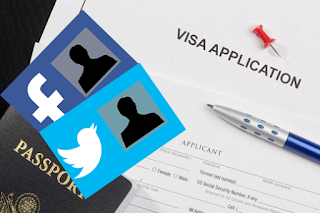Filipino spouses of American citizens are generally eligible for permanent residency and, eventually naturalization based on their marriage. In general, a Filipino spouse may only be naturalized after showing that they have resided continuously as a green card holders within the United States for a certain prescribed period of time. These requirements are called the residency and physical presence requirements. The issue then arises, what about those Filipino citizens who are married to an American citizen, but the couple is living and raising a family in the Philippines. How are they expected to meet the residency and physical presence requirements under U.S. immigration law?
To address this situation, Act 319(B) of the Immigration and Nationality Act (INA) provides for an exception to the residency and physical presence requirements for a Filipino spouse of a U.S. citizen who is regularly stationed abroad under a qualifying employment. A qualifying employment abroad means that the American spouse must be stationed abroad for at least one year under an employment contract or order in any of the following entities or position:
- Government of the United States (including the U.S. armed forces);
- American institution of research recognized by the Attorney General;
- American firm or corporation engaged in whole or in part in the development of foreign trade and commerce of the United States or a subsidiary thereof;
- Public international organization in which the United States participates by treaty or statute;
- Authorized to perform the ministerial or priestly functions of a religious denomination having a bona fide organization within the United States; or
- Engaged solely as a missionary by a religious denomination or by an interdenominational organization having a bona fide organization within the United States.
To qualify for naturalization under Act 319(B) of the INA, the spouse must establish that he or she meets the following criteria:
- 18 years or older at the time of filing;
- A lawful permanent resident at the time of filing of the naturalization application;
- Continue to be the spouse of the U.S. citizen regularly stationed abroad in qualifying employment for at least one year;
- Married to a U.S. citizen regularly stationed abroad in qualifying employment for at least a year;
- Has a good faith intent to reside abroad with the U.S. citizen spouse upon naturalization and to reside in the United States immediately upon the citizen’s termination of employment abroad;
- Establish that he or she will depart to join the citizen spouse within 30 to 45 days after the date of naturalization;
- Understanding of basic English, including the ability to read, write and speak;
- Knowledge of basic U.S. history and government;
- Demonstrate good moral character for at least three years prior to filing the application until the time of naturalization
- Attachment to the principles of the U.S. Constitution and well-disposed to the good order and happiness of the U.S. during all relevant period under the law.
If you are a Filipino spouse of an American citizen who is working in the Philippines simply like to know more about the topic, you may contact an US immigration lawyer in the Philippine for more advice or information on the procedures for availing the exemption discussed above.
Article Disclaimer: This article is made available by the lawyer publisher for educational purposes only as well as to give you general information and a general understanding of the law, not to provide specific legal advice. Use of this article does not create an Attorney Client Relationship. This article does not offer or dispense legal advice. By using the article, the reader agrees that the information does not constitute legal or other professional advice and no attorney-client or other relationship is created. The article is not a substitute for obtaining legal advice from a qualified attorney licensed in your jurisdiction. The information on the article may be changed without notice and is not guaranteed to be complete, correct or up-to-date. The opinions expressed at or through the article are the opinions of the individual author. The article should not be used as a substitute for competent legal advice from a licensed professional attorney in your jurisdiction.











